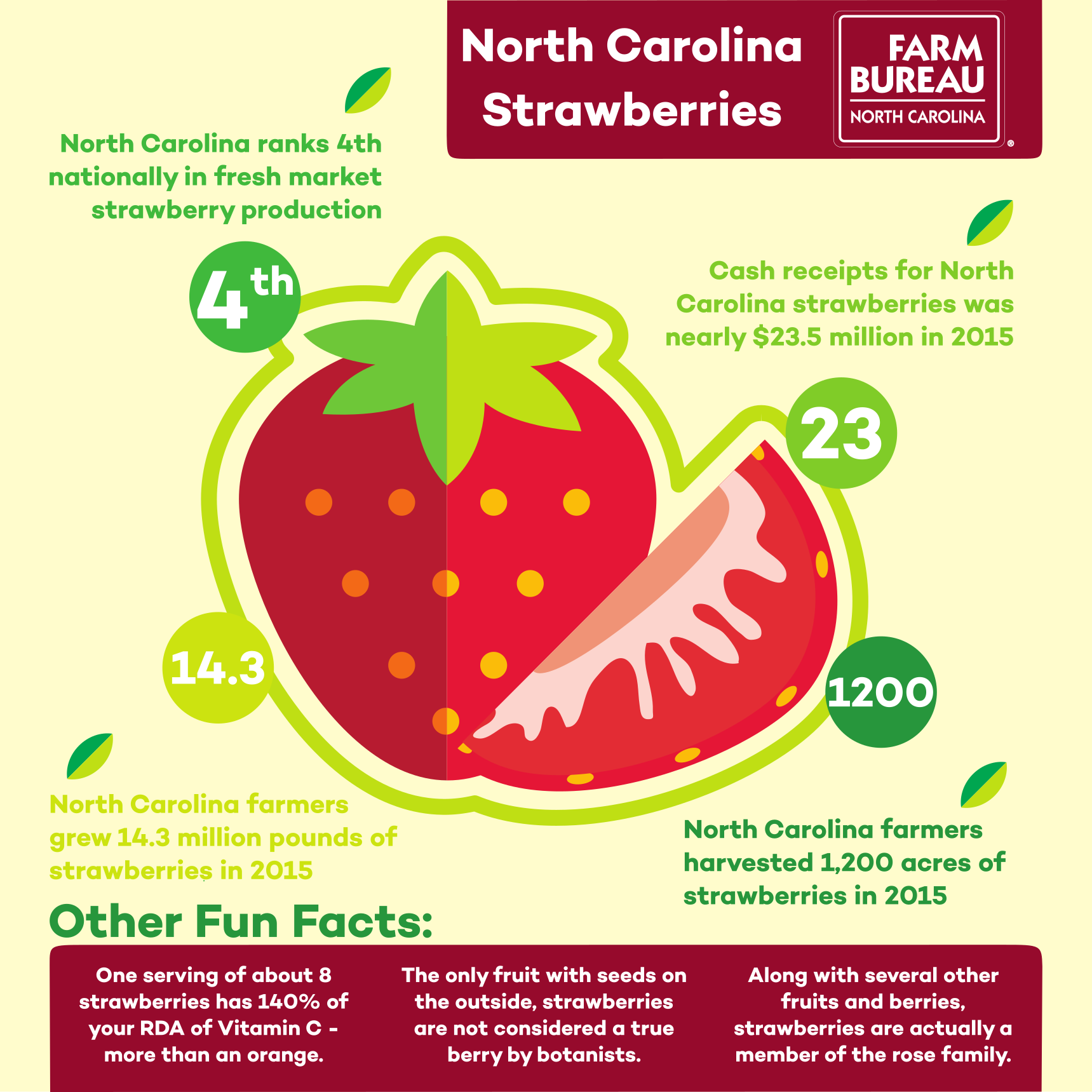Last week, the North Carolina General Assembly passed the 2017 Farm Act, a bill that we’ve written about before and that NC Farm Bureau strongly supports.
The following commentary is by North Carolina Farm Bureau President Larry Wooten, first published in the Summer 2017 issue of NC Field and Family.
New task force promotes agriculture and rural prosperity
 At North Carolina Farm Bureau, we advocate for farmers in the halls of Congress and the offices of the N.C. General Assembly, but we’re nonpartisan. Our focus is with our family farmers and their rural neighbors. They established this organization, and it belongs to them.
At North Carolina Farm Bureau, we advocate for farmers in the halls of Congress and the offices of the N.C. General Assembly, but we’re nonpartisan. Our focus is with our family farmers and their rural neighbors. They established this organization, and it belongs to them.
On April 25, President Donald J. Trump did something good for farmers and agriculture. He issued an executive order entitled “Promoting Agriculture and Rural Prosperity in America.” Much of it reads like a battle plan farmers might use if storming their enemies’ furrows.
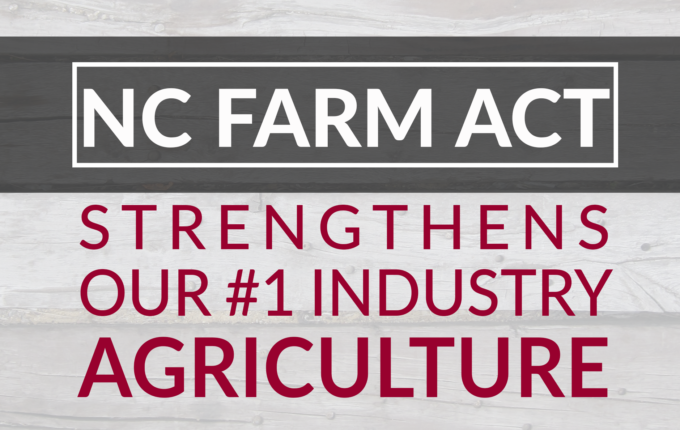 State Government
State Government
Stick with us here. Most people probably understand the wisdom, or can at least appreciate the purpose, of maintaining your home. Over time your home gets cluttered, things break, and some of those deep, dark corners you never visit have to be dealt with. It’s not always a fun job, but doing it can make your home a more enjoyable place to live.
North Carolina’s statutes, just like a home, require ongoing maintenance. So it’s necessary, on occasion, for the Legislature to take a look at our statutes and clean up some of the confusing, unhelpful, and out-of-date provisions.
That’s where the annual Farm Act comes into play. Each year since 2013 state legislators have passed a Farm Act to make necessary changes to the law to better serve North Carolina’s farmers.
By North Carolina Farm Bureau President Larry Wooten
The old saying goes that ‘Good fences make good neighbors.’ There is plenty of truth to that, and as one of the largest land-owning groups in the state, farmers understand this maxim better than most.
This bit of wisdom is at the heart, both literally and figuratively, of a dispute that has been bubbling over in western North Carolina communities for several years now, and is beginning to come to a head. It centers on the reintroduction and management of elk on federal land in the Appalachian Mountains.
Being a North Carolina Farm Bureau member has a lot of perks – discounts, scholarship opportunities, leadership development programs, and even the occasional educational trip. But there’s one program that you don’t have to be a member to enjoy the benefits, and that’s North Carolina Farm Bureau’s Ag in the Classroom program. (We talked about the program in detail last summer, so be sure to check out that post.)
Since the program’s beginning 32 years ago, we have endeavored to provide professional development workshops throughout the state for K-8 teachers. But over the years we’ve tried to shift our workshops away from a lecture format towards more of a hands-on, in-the-field learning experience. After all, if you have to earn Continuing Education Units (CEUs), wouldn’t you rather do it live on the farm instead of sitting in a classroom all day listening to hours and hours of lectured material?
 Enter our Going Local Workshop series. Every summer, these workshops are held directly on the farm and are a great way for teachers to gather materials, lesson plans, and current teaching methods to help show students where our food and fiber comes from locally.
Enter our Going Local Workshop series. Every summer, these workshops are held directly on the farm and are a great way for teachers to gather materials, lesson plans, and current teaching methods to help show students where our food and fiber comes from locally.
 Environment
Environment
Written by Michelle Lovejoy, Executive Director of the North Carolina Foundation for Soil and Water Conservation
“I saw drought devastation in nine states. I talked with families who had lost their wheat crop, lost their corn crop, lost their livestock, lost the water in their well, lost their garden and come through to the end of the summer without one dollar of cash resources, facing a winter without feed or food — facing a planting season without seed to put in the ground.” – President Franklin Delano Roosevelt
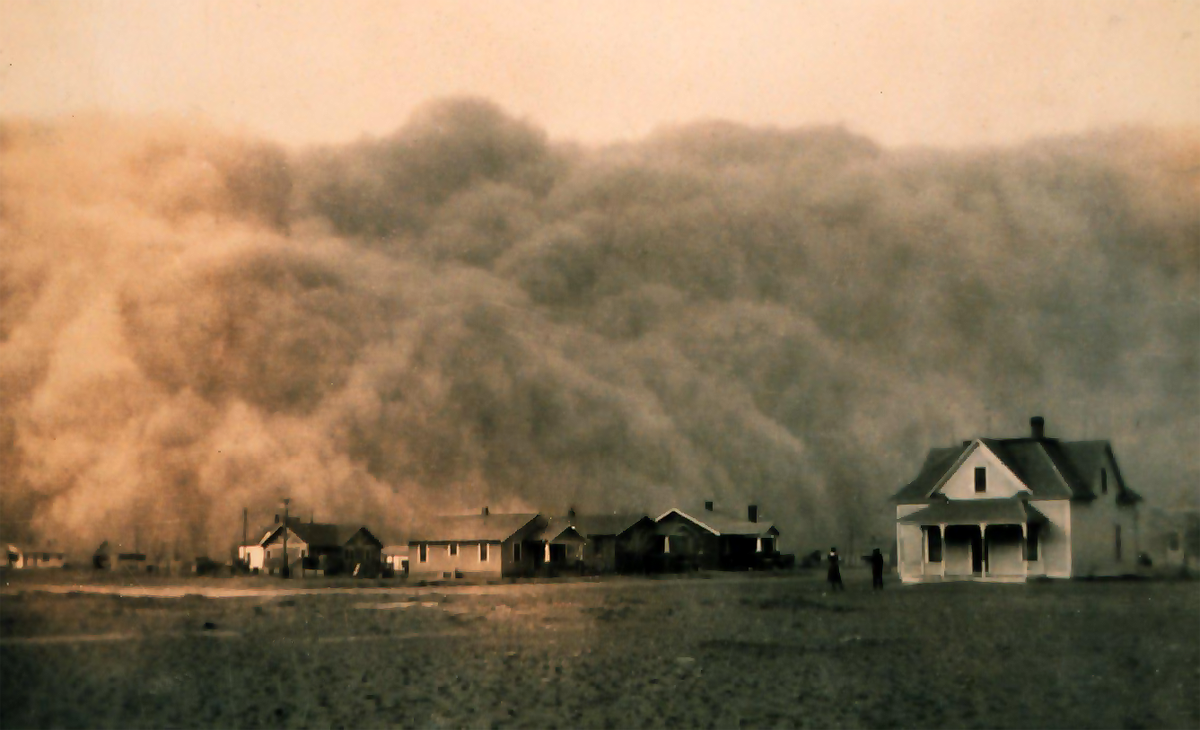 In this quote, FDR is describing his 1936 trip to the Dust Bowl: a 150,000-square-mile area, including the Oklahoma and Texas panhandles and bordering sections of Kansas, Colorado, and New Mexico that was struck by what some scientists believe to be the most severe drought in 300 years. The massive problem started when the drought killed crops that kept the soil in place. Then intense winds raised gigantic dust clouds that would completely cover homes, suffocate livestock and caused pneumonia in many children. It was so strong and unyielding that it even blew dust all the way to Washington, D.C.
In this quote, FDR is describing his 1936 trip to the Dust Bowl: a 150,000-square-mile area, including the Oklahoma and Texas panhandles and bordering sections of Kansas, Colorado, and New Mexico that was struck by what some scientists believe to be the most severe drought in 300 years. The massive problem started when the drought killed crops that kept the soil in place. Then intense winds raised gigantic dust clouds that would completely cover homes, suffocate livestock and caused pneumonia in many children. It was so strong and unyielding that it even blew dust all the way to Washington, D.C.
But how does North Carolina tie into the Dust Bowl?
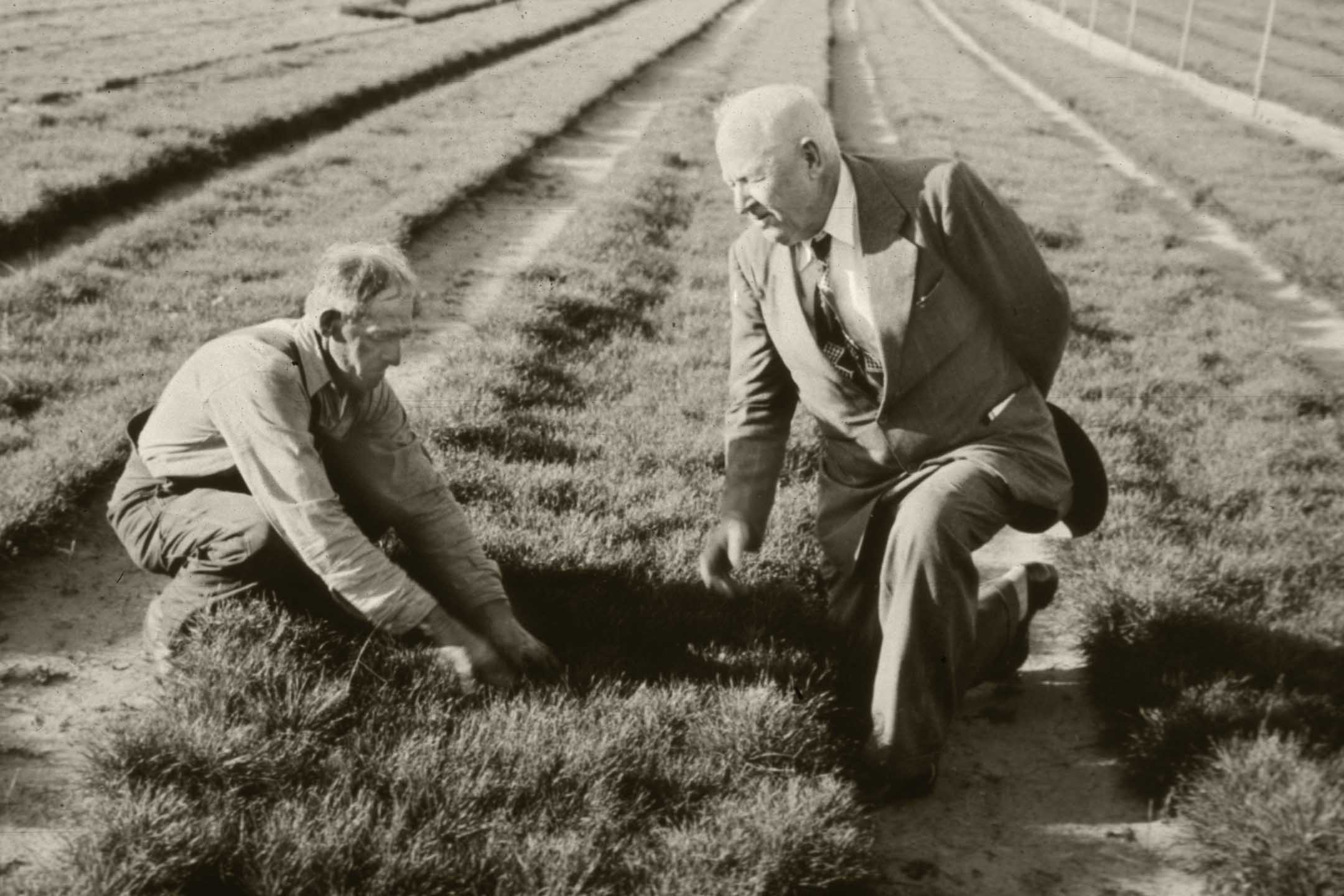 North Carolina (Wadesboro) is home to the Father of Soil Conservation, Dr. Hugh Hammond Bennett. After accepting a job with the USDA Bureau of Soils in 1903, Bennett went on to spend the next three decades studying soils across the US and abroad, and he became convinced that soil erosion was “the biggest problem confronting the farmers of the Nation over a tremendous part of its agricultural lands.” Soil conservation became his life’s work.
North Carolina (Wadesboro) is home to the Father of Soil Conservation, Dr. Hugh Hammond Bennett. After accepting a job with the USDA Bureau of Soils in 1903, Bennett went on to spend the next three decades studying soils across the US and abroad, and he became convinced that soil erosion was “the biggest problem confronting the farmers of the Nation over a tremendous part of its agricultural lands.” Soil conservation became his life’s work.
Dr. Bennett was a smart man and a great communicator. He knew that he needed to drive the point home to Congress so they would understand soil erosion as the “National Menace”. The story goes that in 1935, he started tracking a large dust storm traveling from Oklahoma to Washington, D.C. He began his plea to Congress and had a runner staged to bring updates of the storm’s movement. At the pivotal point, he stepped down from the podium and threw open the window. As the soil flew in he said, “Gentlemen, that is Oklahoma,” – and with that, the Soil Conservation Act was passed.
Why did he recommend soil and water conservation districts?
 Economy / Food
Economy / Food
There’s nothing quite like the taste and smell of fresh strawberries to usher in warm weather and blue skies in North Carolina. And we’re right smack in the middle of the strawberry harvest, which typically runs from mid-April through late May, so there’s no better time to head to a local farmers market, roadside stand, or pick-you-own site to scoop up a few buckets. In fact, the NC Strawberry Association has partnered with the NC Department of Agriculture and Consumer Services, NCDA&CS Farmers Markets, and the NC Dairy Promotions Committee to host Strawberry Days at the farmers market. Here are the details:
- State Farmers Market (Raleigh): Thursday, May 4th from 11am – 1pm
- Robert G. Shaw Piedmont Triad Farmers Market (Colfax): Friday, May 5th from 11am – 1pm
- Charlotte Regional Farmers Market (Charlotte): Friday, May 12th from 11am – 1pm
North Carolina is one of the nation’s largest strawberry producers, and unlike other top states, most strawberries grown here are sold here — fresh, flavorful, and juicy. So in honor of one of the most delicious times of year, today we’re going to pay tribute to the North Carolina strawberry industry.
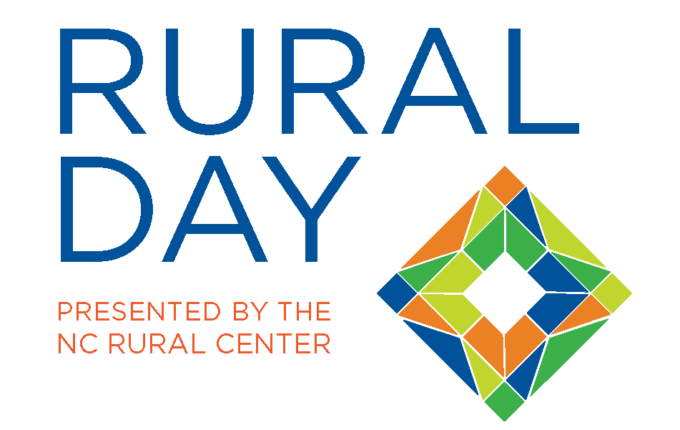 Economy
Economy
The following content provided courtesy of the NC Rural Center
If you are one of North Carolina’s many newcomers who moved here over the past decade, it is understandable you might have a somewhat skewed view of our state. It is likely you moved here and settled in one of our state’s thriving metros or surrounding suburbs. And that is not a bad thing. The explosion of our metropolitan areas over the past 25 years has brought an unprecedented level of economic growth to our state.
But starting with the Great Recession and culminating in the 2016 Presidential election, it became apparent that our state’s economic advances had been uneven and with diminishing returns as the economic boom radiated out from our core metro communities.
If you have read the news since November, you are probably aware of the renewed focus on rural communities. We have seen increased public interest in both our rural communities and the views of the people who call those places home. Unfortunately, too much of that coverage has been framed as an “us vs. them” cultural and economic split and too easily reduced to the “rural/urban divide” tag that pits our towns against our cities in a zero-sum game of competitive economic development.
At the Rural Center, we see daily that there is far more that unites us than divides us. We know we can lift up rural communities without pulling down urban areas. Commuter flows from the rural counties surrounding our state’s metros tell the real story: Our economies are regional, an interconnected web of life and work that can happen counties apart.
It’s simple – the best economic development solutions for North Carolina are rural solutions.

